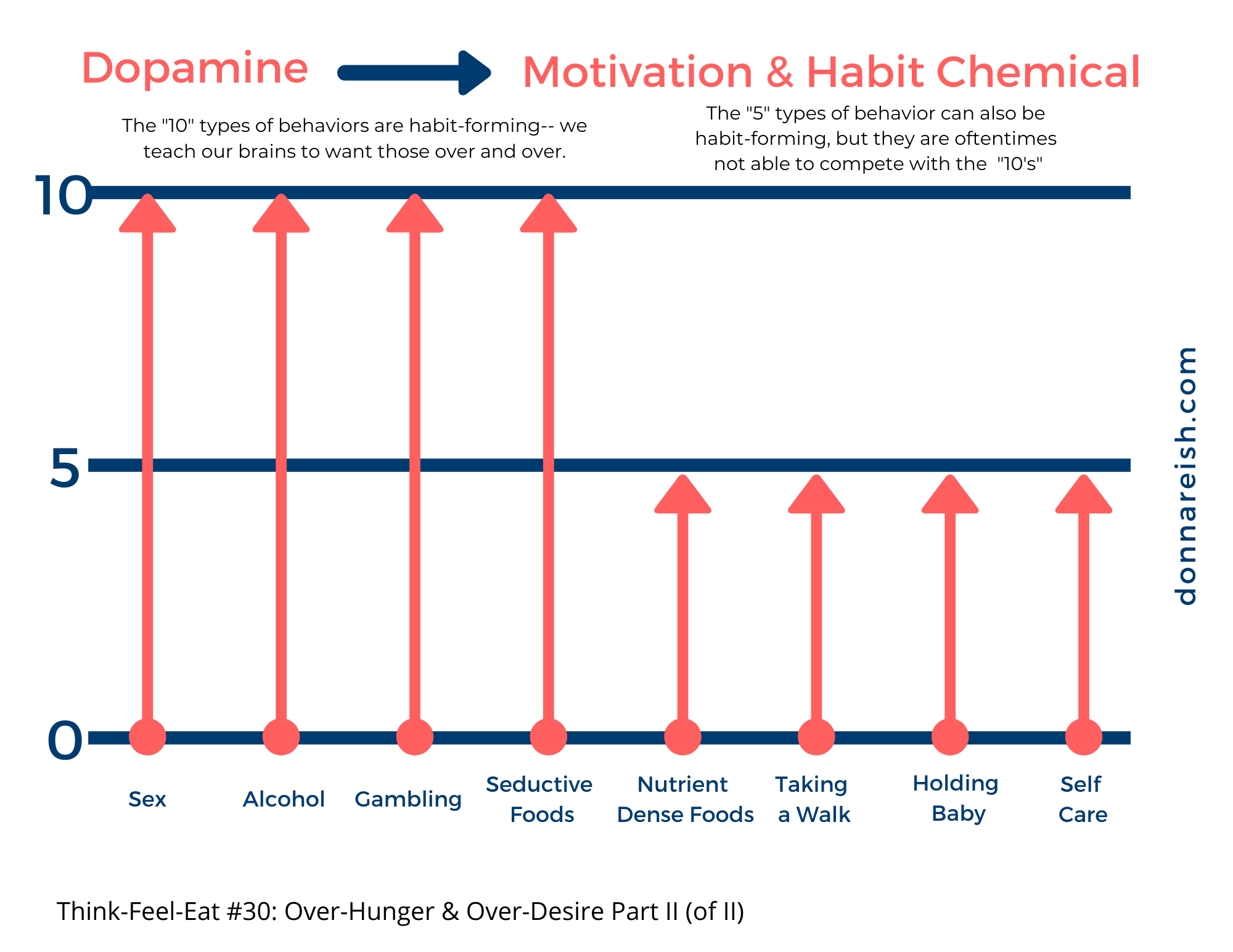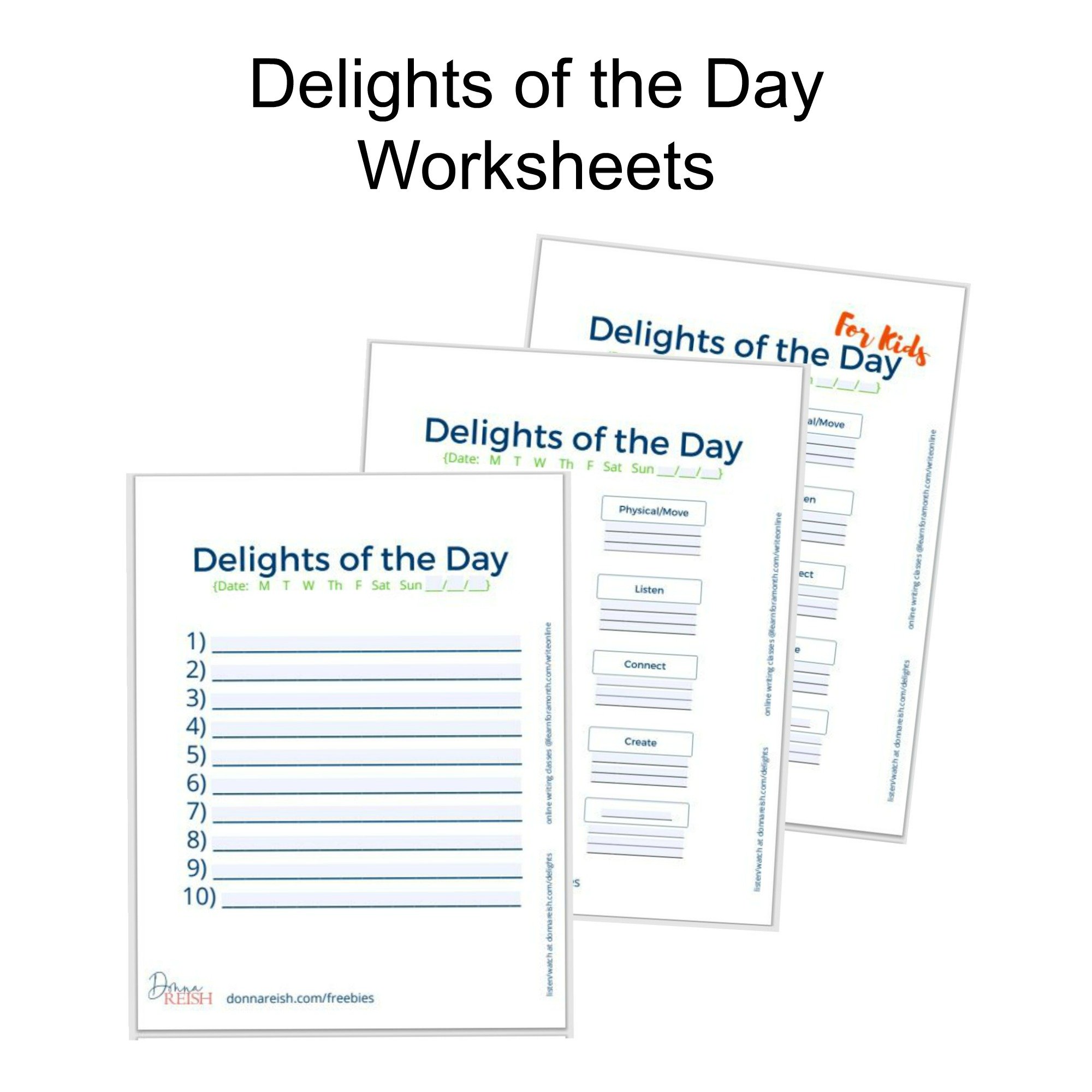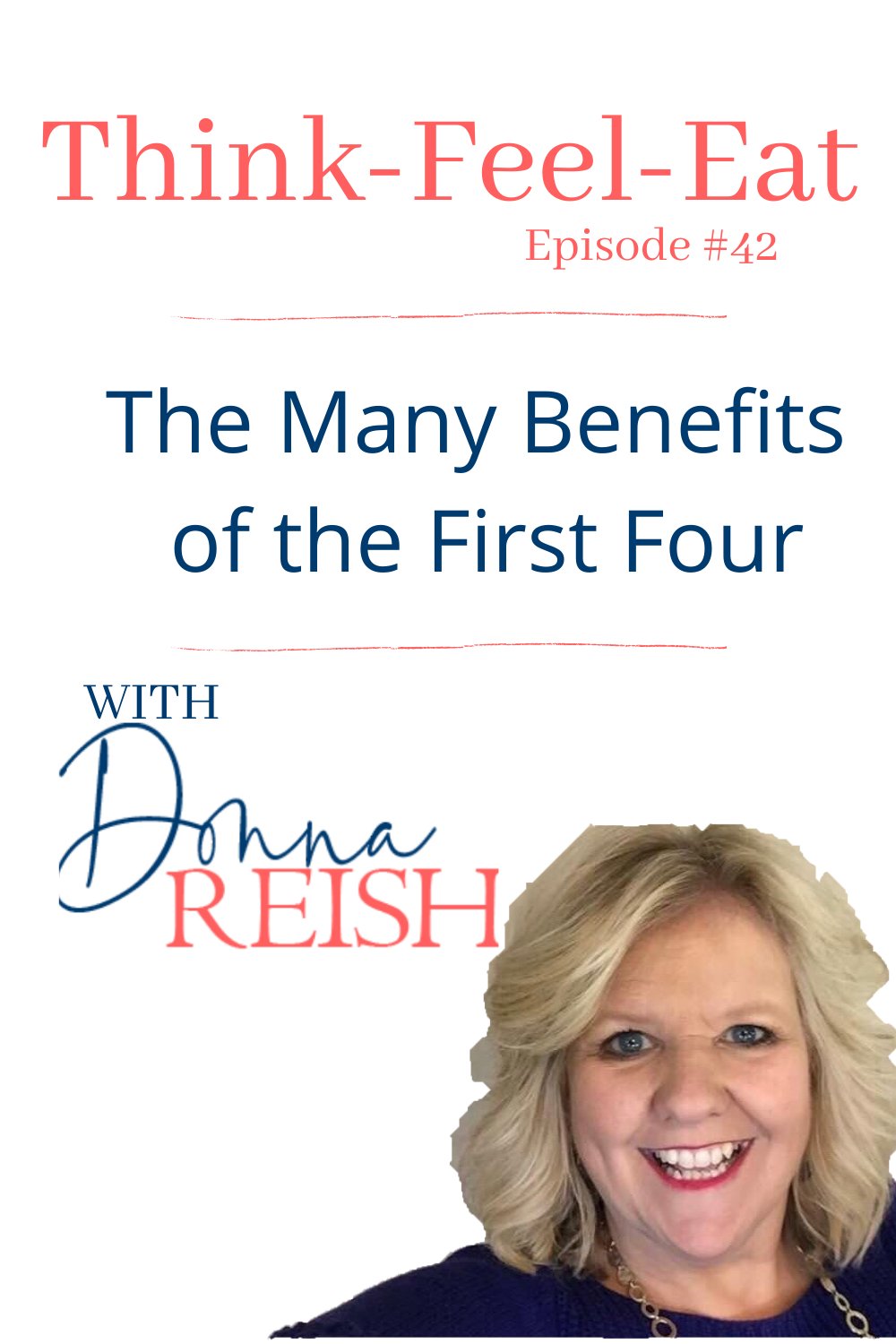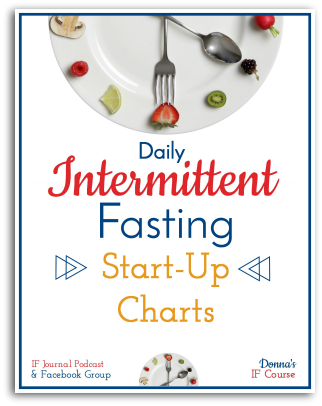
Think-Feel-Eat Episode #49: Morning Routine Success
Hi! I’m Donna Reish, IF teacher, weight loss coach, blogger, and half of “The Minus 220 Pound Pair” as my husband and I have lost over 220 pounds together (160 of that in the past couple of years through the Weight Loss Lifestyle habits and strategies I teach!).
In this episode, I present how (and why) to create a morning routine that works!
Following last week’s Evening Routine episode (#48), we are now working on the morning routine! In all of my twenty years of teaching moms, I told them to fix things in this order: (1) Fix the night before first; (2) Fix the first hour of your day next!
And so it is with women who want to lose weight, maintain weight loss, and design their lives!
So here is what we looked at this week:
- Why a successful morning routine starts with a successful evening routine
- Your morning routine starts with self-integrity (and how to start gaining that!)
- Your morning routine should contain the things that solve the “squeakiest wheels”
- Your morning routine should contain what makes the biggest difference for the rest of the day
- How to determine how much time to devote to the morning routine
- How to build a morning routine incrementally
- How to examine the things that make your mornings the most hurried
- How to plan your food time, type, and amounts quickly in the morning
- How to plan with your pre-frontal cortex rather than your “toddler brain”
- AND….so many morning routine tips, tricks, and techniques!
Find all of my episodes, outlines, and articles for my two weekly broadcasts:
(1) Weight Loss Lifestyle broadcast (formerly Donna’s Intermittent Fasting Broadcast)
Think Feel Eat 49 Outline Morning Routine Success
A. Successful Morning Routines Start With Successful PM Routines!
1. A Good Tomorrow Starts Tonight
2. Sleep greatly affects tomorrow
a. TFE 34
b. TFE 36 and 37 Sleep and Cortisol
c. TFE 38 and 39 Fix Sleep Problems
3. Sleep is a discipline
a. Dopamine spikes from alternatives to sleep—watching streaming or YouTube; scrolling socials; playing online games; chatting online; etc.
b. See Dopamine graph below
c. See also WLL 60 and 61 for willpower info
4. Watch/listen to PM Routine FIRST!!! TFE #48
B. Creating AM Routines
1. Understand and believe that habits that stick are incremental (See TFE #20 Tools for Self-Integrity.)
2. Start with…
a. What you will really do! (Email 12/28)
b. What makes the biggest differences for the rest of today?
c. What is “due” next?
d. How much time do I want to devote to morning routine? (BE realistic!)
e. What are the first things I should start with since I am building this routine incrementally? What do you absolutely need to do?
3. More tips
a. Look at what makes you too hurried in the mornings—can you put something from the morning into the afternoon or evening?
b. Look at sleep—exactly how much do you need and reverse engineer
c. What lets you relax the most knowing that you have it done?
d. You can’t do it all—so narrow it down to the time you have available and what are absolutes
e. Say decisions aloud
C. AM Habits for Weight Loss
1. Start with setting yourself up for success today
a. Evaluate your First Four Journal Sheet OR input in My Fitness Pal
b. Plan your food time, type, and amounts (TFE #42 and TFE #22)
c. Plan your movement today
d. Do all of this planning with your pre-frontal cortex rather than letting your primal/toddler brain tell you what to eat and how NOT to move later on in the day!
2. Ready for today with food
a. Hopefully, you have prepped some food for today yesterday! (TFE #48)
b. And hopefully, you have packed food. This is one area that we can change the hurried/harried mornings since packing food at night works just as well for storage as packing that morning.
c.Evaluate what you MUST to in the morning and what you could have done ahead of time
d. Packed/loaded in general so you don’t have such a hurried morning? (Rising cortisol levels from not being ready for the day can cause us to hold on to belly fat, overeat, and give in to cravings.)
e. I like to start blocking my day the day before then I finish it in the morning—be sure to put your appointments and things that are absolutes AND your Delights of the Day/self care/workouts in Other PM Habits for SuccessFinal Thoughts
D. More AM Routine Tricks
1. Make yours incrementally—using the “due next” and “squeakiest wheel” approach
2. Only put in what you absolutely must do for now
3. Put anything you can in another time slot (i.e. my reading breaks, later step sessions, etc.)
4. Reverse engineer from the time you have to have morning routine done to the REAL time you will get up
5. Don’t make it so long that you become “all or nothing” with it
6. Wake up signals—the continuity items that help me get moving
a. Song of the morning
b. Spiritual listen (podcast, etc)
c. Supplements and bottles for the day
d. Alternate hair days—anything I can reduce from my morning
E. Final Thoughts
1. None of my routines (PM or AM) happened all at once
a. Started with hygiene and what was needed for the day today
b. Added things incrementally after I was successful at a couple of continuity items
c. Everything good in my life has come incrementally and over a long period of time!
F. Get More Help!
1. Join my FREE FB group where I record videocast/podcast episodes!
2. Emails with teaching around weight management––articles, videos, free charts and booklets, and more
3. Take my month-long Intermittent Fasting course
4. Schedule a free 30 minute coaching consult!






































